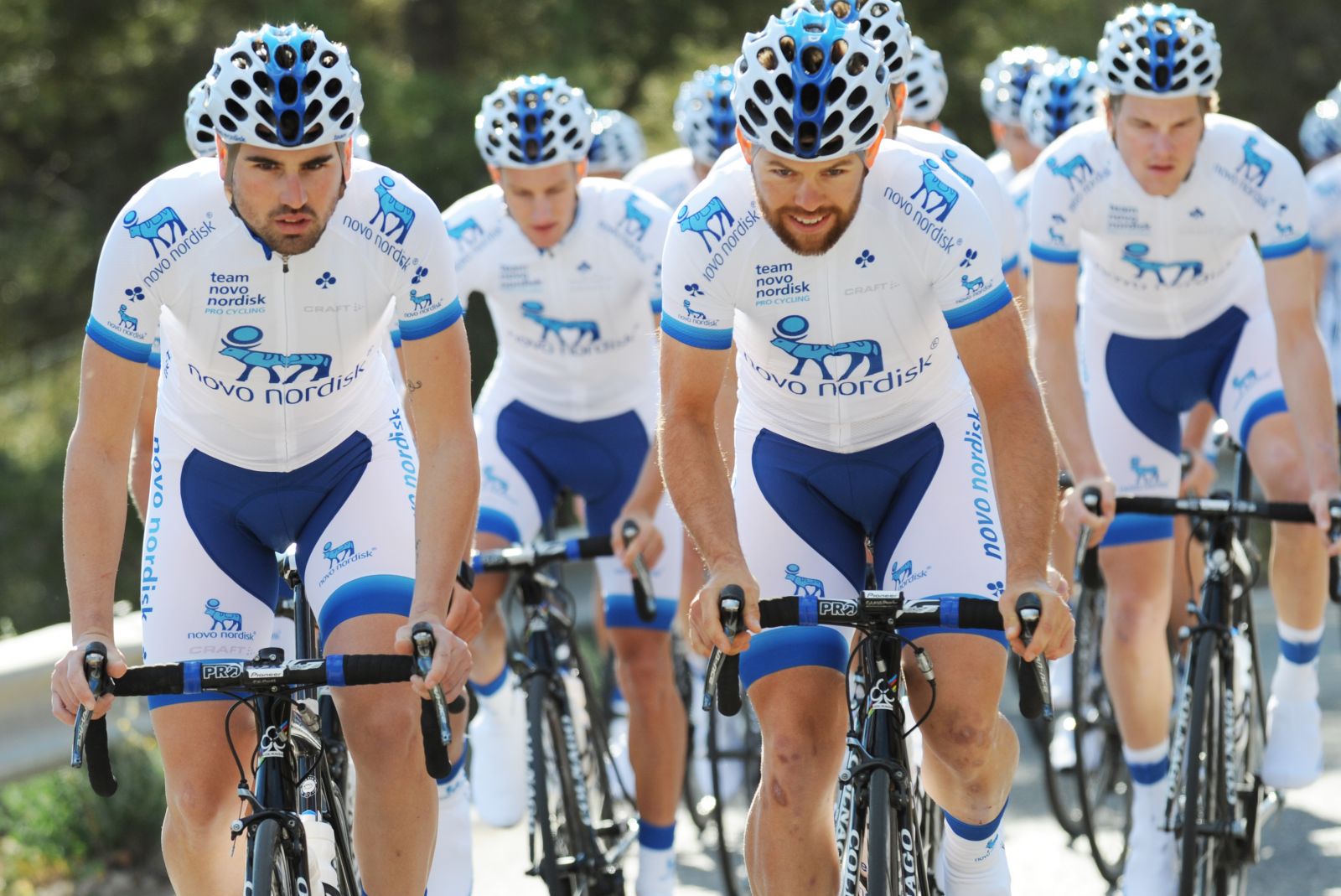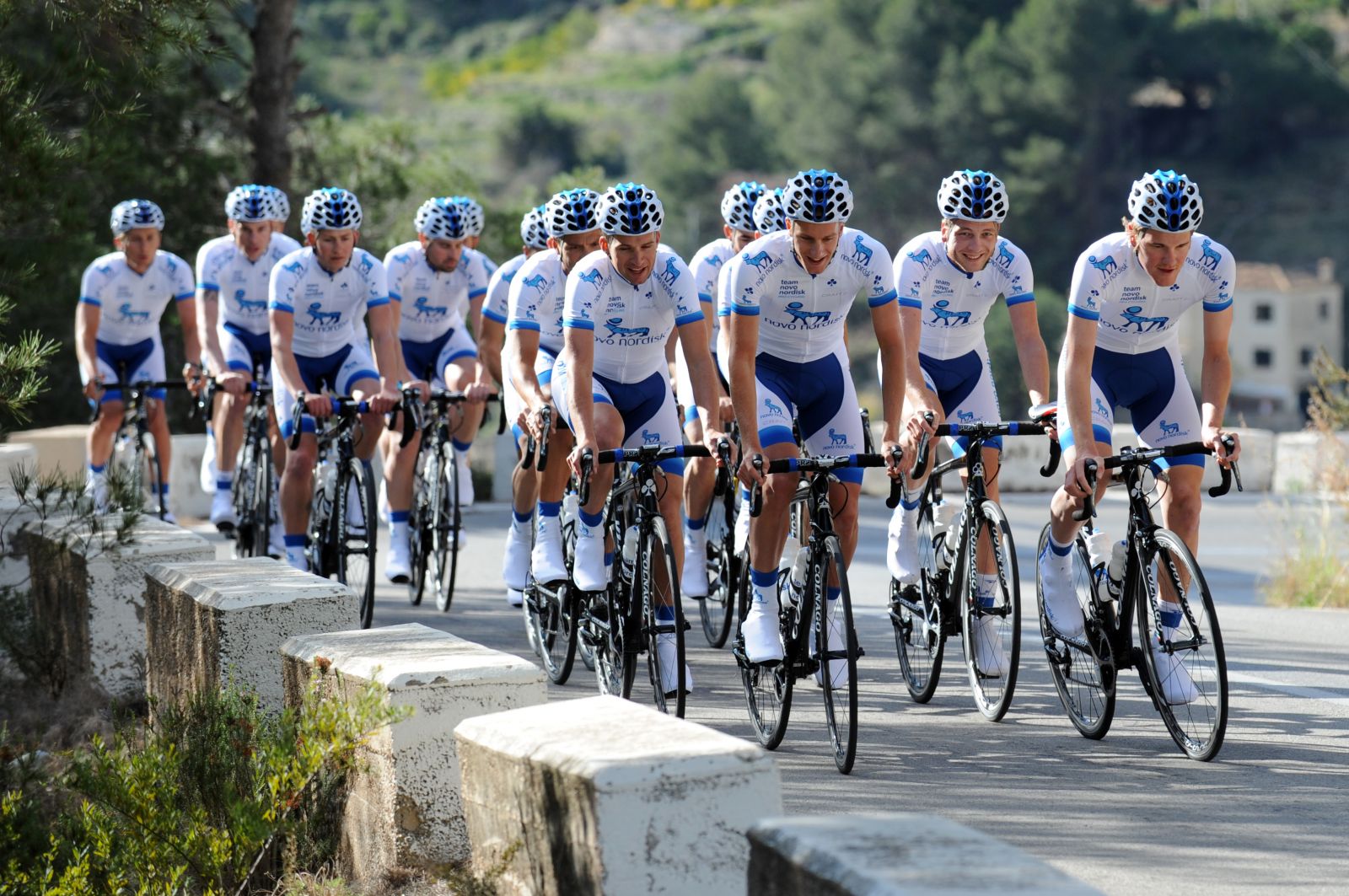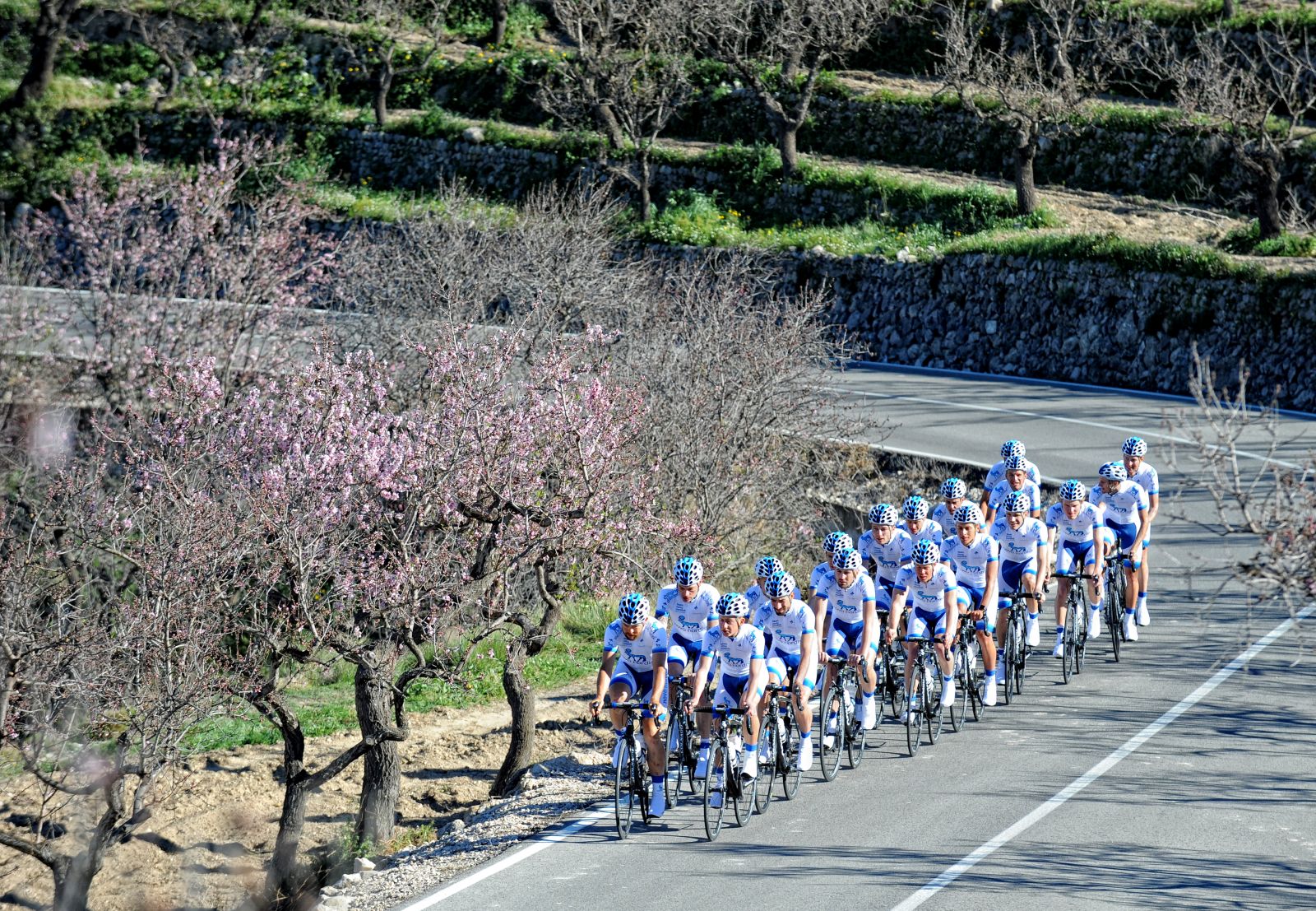People with Diabetes Are Not “Suffering,” and There is No “Bad” Kind
By Lynn Kennedy
Team Novo Nordisk athletes with diabetes dispel myths and stigma.
Our team was fortunate to attend Team Novo Nordisk’s (TNN) Diabetes Online Community Meet-up at the recent ADA conference in New Orleans to hear members of the all-diabetes professional team and friends discuss “Diabetes Language, Myths & Stigma.” Panelists included:
-
Lauren Adams, RD CDE (USA) – TNN, Elite Runner
-
Ben Dilley (USA) – TNN, Former Pro Cyclist
-
Thomas Raeymaekers (BEL) – TNN, Former Pro Cyclist
-
Renza Sciliba (AUS) – Diabetes Australia & Diabetogenic
As professional athletes living with diabetes, TNN smashes some commonly held misconceptions about diabetes, and in doing so, strives to reduce – and eventually end – diabetes stigma in society. At this enlightening event, TNN shared the stage with Professor Jane Speight from the Australian Centre for Behavioural Research in Diabetes, who contributed valuable insight from her own research.
Our main takeaway was that language is a big piece of the puzzle: it can dispel harmful myths, stop stigmatizing attitudes, and halt unhelpful behaviors.
How do diabetes myths lead to stigma?
Diabetes myths showcase an overall limitation of diabetes literacy and awareness that, while not intended to be harmful, contributes to societal stigma towards diabetes. TNN members shared their own encounters with uninformed questions and comments about their diabetes:
-
Lauren: “I didn’t know people with diabetes could get pregnant.”
-
Renza: “I know how you cure diabetes … just drink water!”
-
Ben: “Is your diabetes contagious?”
-
Thomas: “Do you still have diabetes?”
-
Renza: “Do you have the good or bad type of diabetes?”
-
Ben: “Did you drink too much soda as a kid?”
For each of the questions or comments above, the myths they include can be tied to a stigmatized belief that may be (unfortunately) widely held: people with diabetes are sick and unhealthy; diabetes is something people bring upon themselves, either through actively made poor choices or through neglect of healthy habits; and that one type of diabetes is caused by a person’s behavior while another is not. A noted source of stigma even comes from some people with type 1 diabetes inadvertently contributing to stigma around type 2 diabetes by trying to distance their diagnosis from their own behavior, even though there are genetic and environmental causes of type 2. Bringing attention to this dynamic can help decrease this language and behavior and contribute to greater understanding and awareness of the complexity of diabetes.
How much impact does stigma really have?

He is not alone in experiencing discrimination – employment or otherwise – due to diabetes. The DAWN2 study found that 1 in 5 people with diabetes report feeling discriminated against due to diabetes and that 1 in 3 healthcare professionals believe that discrimination on the basis of diabetes is a societal issue. To combat the harms that can arise from myths and stigma, TNN seeks to dispel myths through education and to prove that anything is possible with diabetes.
Why Does Diabetes Language Matter?
The words we use help shape feelings and attitudes regarding the topics we talk about, and this applies to diabetes as well. A recent TNN study found that people with diabetes, their parents, and their partners often have preferred words and terms when discussing diabetes. Notably:
|
|
Preferred Language |
Instead of |
|
Someone who has diabetes is |
a person with diabetes |
a diabetic |
|
Those who don’t have diabetes are |
people without diabetes |
healthy or normal |
|
Diabetes is a |
condition |
disease |
|
Diabetes must be well |
managed |
controlled |
|
I need to ___ my blood sugar |
check |
test |
Without knowledge that this preference exists, however, it could be easy to swap one version out for the other without any bad intent whatsoever.
What examples are there in the healthcare setting that people with diabetes and their healthcare providers can address? Two surfaced during Dr. Speight’s presentation: the language of “compliance,” and the language of “controlling” blood sugar. The healthcare field has moved away from using “compliance” when it comes to people following their treatment regimen and using the word “adherence” instead, but Dr. Speight pushed the audience to think of why even this language is problematic. It implies that there are clear instructions for care, when evidence shows that it’s common for providers and patients not to even remember what it was that was discussed during a visit. How might we change our language to better reflect a more equal partnership between a patient and his/her care provider?
Using the word “control” when describing blood glucose levels implies that people always have power over their blood sugar. As we’ve written about, 22+ factors influence blood glucose, and it is not something that people can choose to simply “control.” Dr. Speight suggested that people move towards describing PWDs “influencing” their blood glucose.
How can language use be shaped?
TNN’s VP of Marketing and Medical affairs, Matt Vogel, who also lives with diabetes, shared a powerful example of lauded NBC pro cycling announcers Phil Ligget and Paul Sherwen announcing that “Team Novo Nordisk riders suffer from diabetes” during a race in which TNN competed alongside cyclists without diabetes. The team took this as the perfect opportunity to engage in a discussion about diabetes and language use in an educational manner. They arranged a meeting with the announcers and sure enough, during a following competition, announcers detailed how Spanish TNN rider “Javier Megias is living with type 1 diabetes.” This example showcases the great potential of education to help shape societal responses to diabetes. Not only was a conversation able to effect behavior change with the announcers, but the worldwide cycling audience was exposed to positive language use as a result!
It will take a lot of work to combat and reverse stigma, but Professor Speight and her team believe it can be done; education, advocacy, social marketing, counseling, social support, and health promotion all proved successful tools to combat stigma through their research. TNN incorporates many of these techniques by broadcasting their education and advocacy efforts to the public through popular sport, working to make society as smart as possible about diabetes.
About Team Novo Nordisk
Team Novo Nordisk is an all-diabetes team of athletes that competes around the world in endurance sports. The team is spearheaded by its professional cyclists, whose relentless training is driven by the desire to qualify for competition in the Tour de France (the world’s toughest cycling race) in the year 2021 (the 100th anniversary of the discovery of insulin). Along the way, TNN athletes are doing all they can to advance the team’s mission: to educate, inspire, and empower people with knowledge about diabetes. For more, see diaTribe’s past coverage of TNN, including a great interview with founder Phil Southerland, information on TNN's talent ID camps, and our experience in the team car last summer.
[Photo Credit: Team Novo Nordisk]









